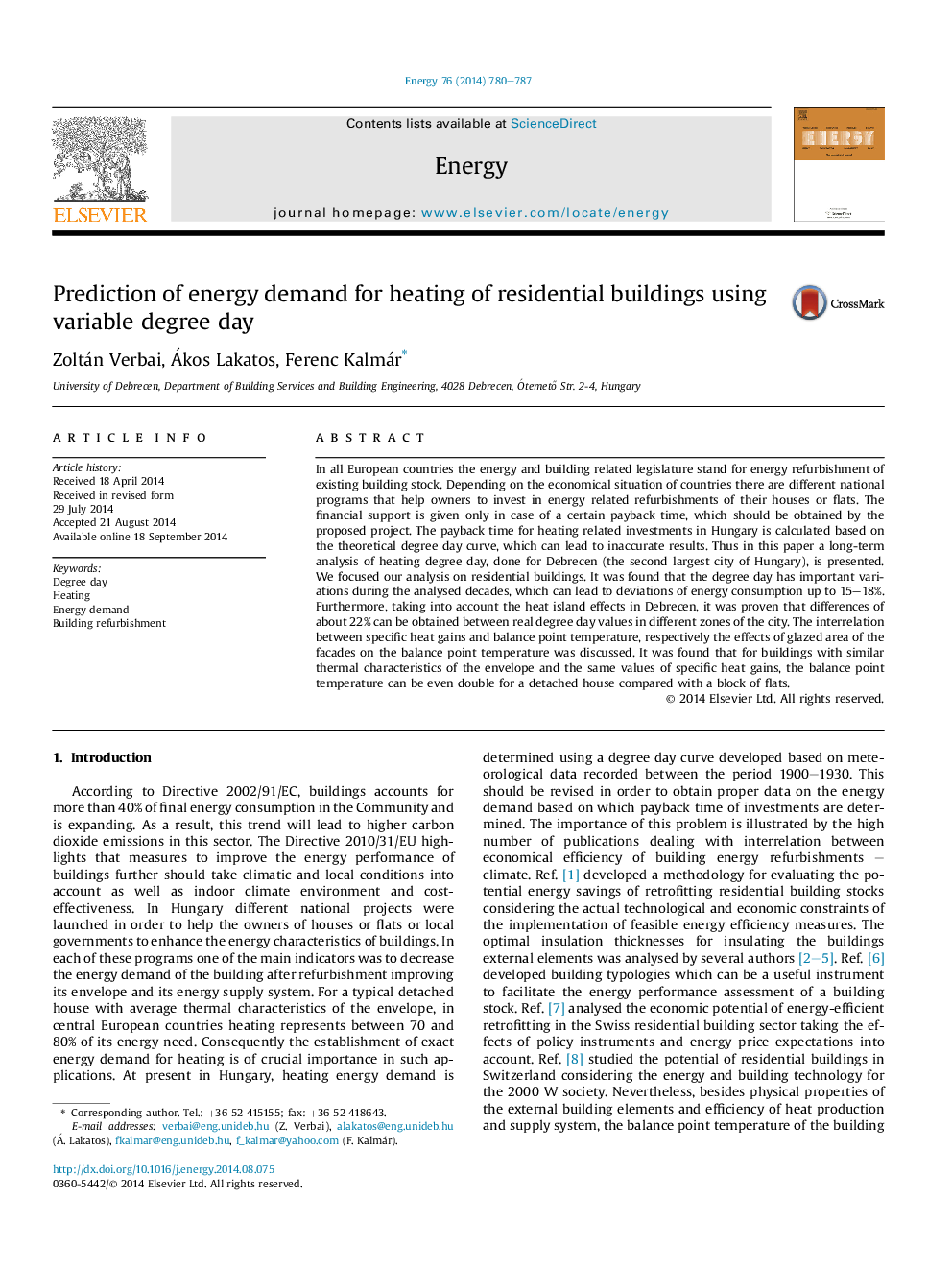| Article ID | Journal | Published Year | Pages | File Type |
|---|---|---|---|---|
| 8076920 | Energy | 2014 | 8 Pages |
Abstract
In all European countries the energy and building related legislature stand for energy refurbishment of existing building stock. Depending on the economical situation of countries there are different national programs that help owners to invest in energy related refurbishments of their houses or flats. The financial support is given only in case of a certain payback time, which should be obtained by the proposed project. The payback time for heating related investments in Hungary is calculated based on the theoretical degree day curve, which can lead to inaccurate results. Thus in this paper a long-term analysis of heating degree day, done for Debrecen (the second largest city of Hungary), is presented. We focused our analysis on residential buildings. It was found that the degree day has important variations during the analysed decades, which can lead to deviations of energy consumption up to 15-18%. Furthermore, taking into account the heat island effects in Debrecen, it was proven that differences of about 22% can be obtained between real degree day values in different zones of the city. The interrelation between specific heat gains and balance point temperature, respectively the effects of glazed area of the facades on the balance point temperature was discussed. It was found that for buildings with similar thermal characteristics of the envelope and the same values of specific heat gains, the balance point temperature can be even double for a detached house compared with a block of flats.
Related Topics
Physical Sciences and Engineering
Energy
Energy (General)
Authors
Zoltán Verbai, Ákos Lakatos, Ferenc Kalmár,
